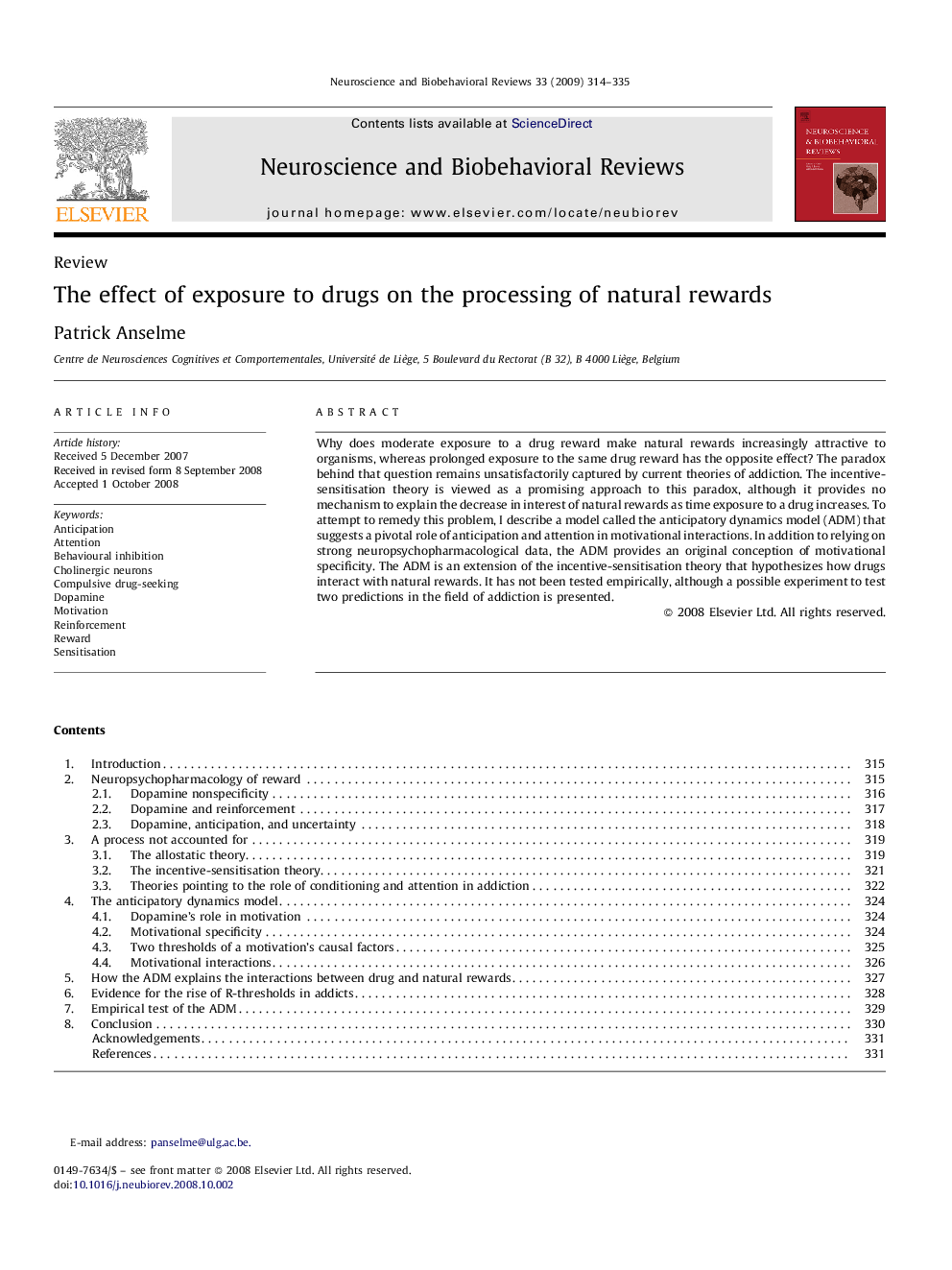| Article ID | Journal | Published Year | Pages | File Type |
|---|---|---|---|---|
| 938172 | Neuroscience & Biobehavioral Reviews | 2009 | 22 Pages |
Why does moderate exposure to a drug reward make natural rewards increasingly attractive to organisms, whereas prolonged exposure to the same drug reward has the opposite effect? The paradox behind that question remains unsatisfactorily captured by current theories of addiction. The incentive-sensitisation theory is viewed as a promising approach to this paradox, although it provides no mechanism to explain the decrease in interest of natural rewards as time exposure to a drug increases. To attempt to remedy this problem, I describe a model called the anticipatory dynamics model (ADM) that suggests a pivotal role of anticipation and attention in motivational interactions. In addition to relying on strong neuropsychopharmacological data, the ADM provides an original conception of motivational specificity. The ADM is an extension of the incentive-sensitisation theory that hypothesizes how drugs interact with natural rewards. It has not been tested empirically, although a possible experiment to test two predictions in the field of addiction is presented.
